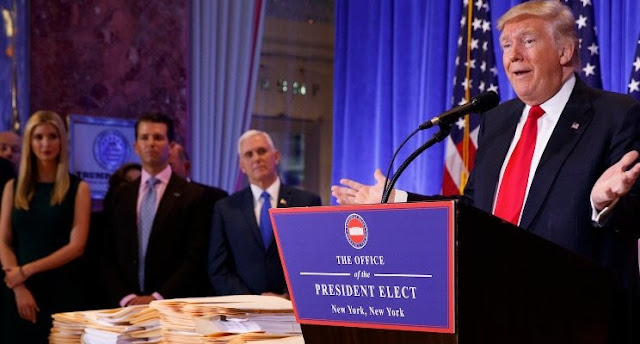Welcome to the morass that is Government records retention in the digital age.
****************************************************************
Disclaimer: All of the ideas expressed in this article are my personal statements and opinions, and do not reflect the opinions/statements of the City of Urbana.
****************************************************************
Because I deal with these discussions in my day job, I was curious about this developing story and anxious to do a little research. Here’s what I found out tonight. ("Tonight" was 12/18/2017... facts are certain to improve over time).
First, the National Archive’s Guidance On Presidential Records (https://www.archives.gov/files/presidential-records-guidance.pdf ) distinguishes between personal and Presidential records for the President. It also definitively states that the transition team records are personal (see page 5):
Personal records remain the personal property of the President or the record creator. Records created by the President-elect and his transition team are also considered personal records.
So, the Trump team has a point in saying that the transition documents are personal (they also use the word "private").
However, where they blew it was the opposite of Hillary’s problem: the Trump Team's e-mail went through GSA servers. (Remember, Hillary's mistake was sending official records outside of the government servers.) It’s kind of like any workplace – if you use enterprise e-mail, you have no expectation of privacy in what you send. It’s especially true with services paid for by taxpayers! (And rightly so… in my opinion.)
The Trump team did have a Memo of Understanding (MOU) with the GSA stating that "GSA will supply (telecommunications and IT services) and equipment, and the equipment will be returned by February 19, 2017. This equipment will be inventoried and all data on these devices will be deleted." (Emphasis added.) https://www.documentcloud.org/documents/4110103-GSA-Memorandum-of-Understanding-with-Trump.html
So why weren't the records deleted? Well, in the letter of complaint, Trump for America (TFA) lawyer Kory Langhofer states that TFA asked for the records to be retained. (Letter: https://www.politico.com/f/%3Fid%3D00000160-616c-dcd4-a96b-756de2a90000) Interestingly, they did so after instructing GSA that the e-mail archives "were no longer to be preserved." Don't be shocked that the records were still available; it's normal that, even if they were set to "not be preserved," they might still be on a recent backup. Also, it takes time to (properly) dispose of government documents. In Illinois, we must submit a request to the State to destroy files - even ones that are past their predefined retention dates - and those requests take time to get approved.
It sounds like TFA was OK with the records being held because the letter describes an agreement reached over the summer with GSA Counsel Richard Beckler (a Trump appointee) that any requests for documents from GSA would be reviewed by TFA lawyers. (This story appears on pages 3-4 of the letter.) That would give Trump's legal team the chance to redact huge amounts of the e-mails, or even withhold them for reasons such as attorney-client privilege, which is mentioned in the Langhofer letter.
Unfortunately, by summer's end Richard Beckler was hospitalized, and died. The Mueller team's request arrived while Beckler was hospitalized, and it was fulfilled by staff.
Almost certainly, Mueller's request was discussed by the highest levels of GSA Legal and Management - yes, those “career staff" who may not have appreciated the Trump administration. They had to decide whether the records should be produced or not. Based on the Langhofer letter, it sounds like they produced them willingly. (And yes, I absolutely believe that the GSA people knew what they were doing.)
Ultimately, I expect that this belated attempt at a cover up will not work. The records were stored on GSA servers, from which they were released by GSA staff, in response to a request from the US Government's Special Counsel. It sounds like there are several legal avenues to justify the record releases, although I personally don't know much about these federal ones. ("These include the 'special-needs doctrine,' the 'third-party doctrine' and National Security Letters (NSLs)." - Quote from this Forbes article by Frank Miniter: https://www.forbes.com/sites/frankminiter/2017/12/17/how-mueller-got-trumps-presidential-transition-teams-emails )
Really it's too late anyway; the e-mails are already in the Special Counsel's office. Even if they are inadmissible as evidence, they will help investigators in other ways. Thus, we have a new political maxim: “It’s not the crime; it’s the cover-up… unless you can’t even do the cover-up right, in which case your e-mails are soon going to be published by some hacking site for all to see.”
